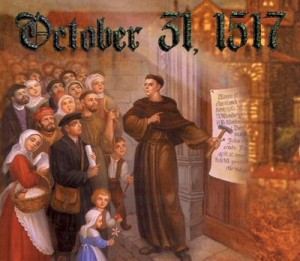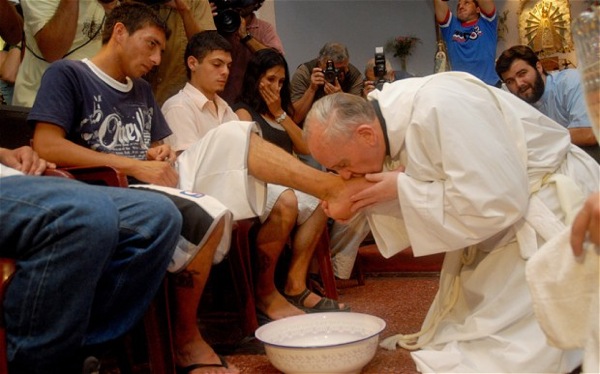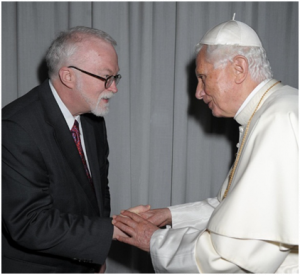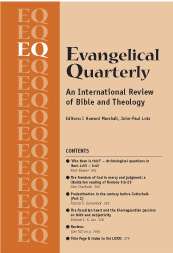 Today begins the week that includes, October 31, the day that Protestants have traditionally called “Reformation Day.” For it is the day that in 1517 Martin Luther nailed his 95 theses to the door of All Saints Church in Wittenberg. We are now only 4 years away from the 500th anniversary of those earth-shaking events that transformed the trajectory of Western Christianity. During this week I will be posting links to several articles in commemoration of Reformation Day. These articles either deal with the Reformation in particular or with Catholic doctrines with which Protestants disagree.
Today begins the week that includes, October 31, the day that Protestants have traditionally called “Reformation Day.” For it is the day that in 1517 Martin Luther nailed his 95 theses to the door of All Saints Church in Wittenberg. We are now only 4 years away from the 500th anniversary of those earth-shaking events that transformed the trajectory of Western Christianity. During this week I will be posting links to several articles in commemoration of Reformation Day. These articles either deal with the Reformation in particular or with Catholic doctrines with which Protestants disagree.
The first article is
Published in 2010 on The Catholic Thing, here’s how it begins:
Sunday, October 31, is Reformation Day. It marks 493 years since Martin Luther nailed his 95 theses to the famous church door in Wittenberg, Germany. The Augustinian monk set in motion a sequence of events that reverberated through Western Christendom and continues to mark and separate us today.
Since returning to the Catholic Church in late April 2007, I find Reformation Day has taken on a different meaning than when I stood on the other side of the Tiber. Nevertheless, even as a Protestant, my enthusiasm for October 31 never rose higher than modest appreciation for what I thought were Luther’s, and later Calvin’s, significant contributions in helping Western Christians to retrieve what had been lost. I say “modest appreciation,” since it always seemed to me rather unseemly to get too excited about schism and mutual charges of apostasy and heresy. It would be like celebrating the tenth anniversary of your divorce. You may think that the divorce was a good idea, but not because you think divorce itself is the proper end of a marriage.
Luther himself, though excommunicated, never saw his movement as anything more than a renewal movement within the Church. We, of course, know now that the movement he started had a life of its own, resulting in scores of different and often conflicting understandings of Scripture, sacrament, and Church, and each finding something in Christianity’s traditions to challenge.












